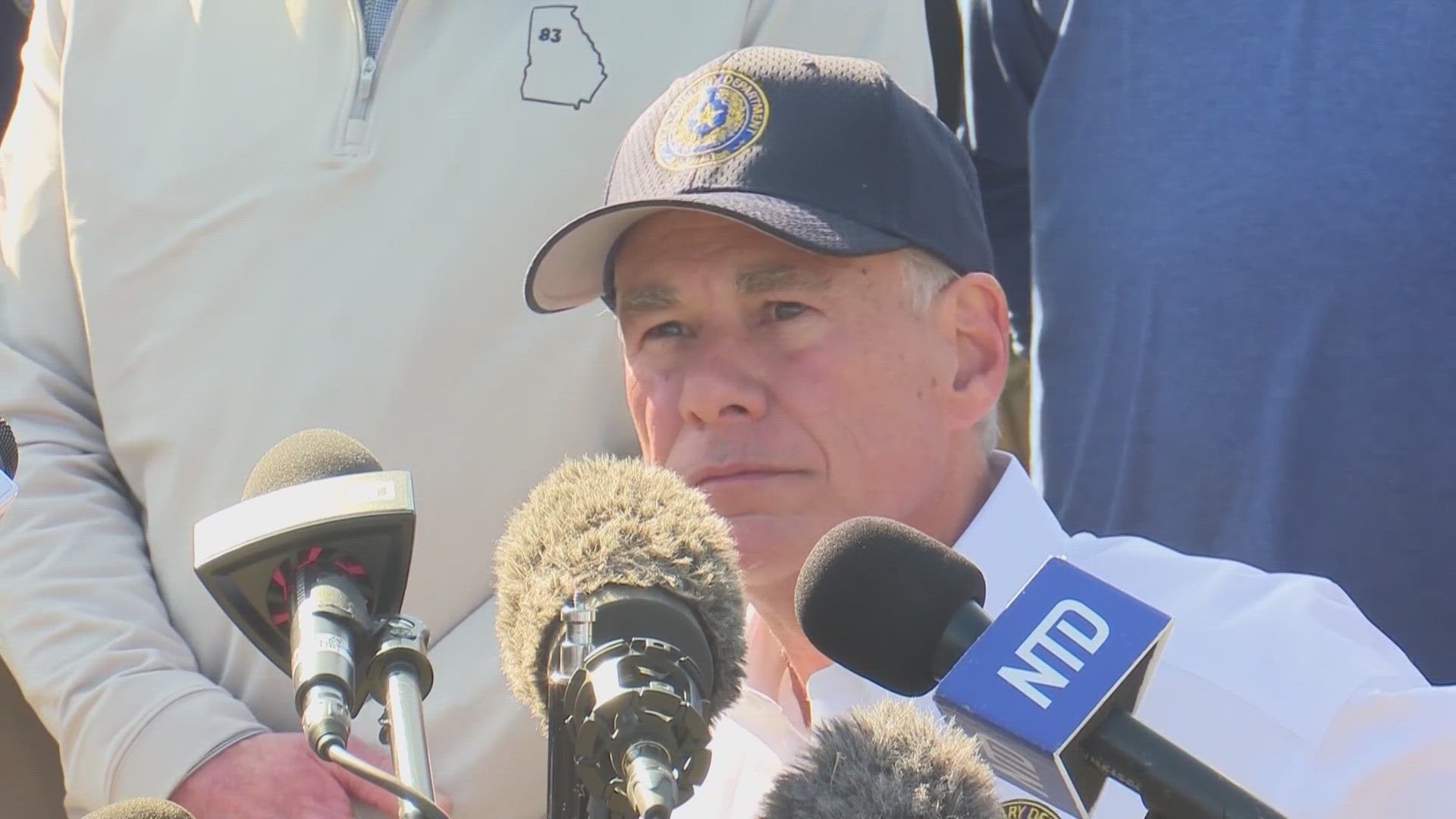SAN ANTONIO — A controversial Texas immigration law remains in legal limbo following a lower court’s Tuesday-night decision to pause the legislation hours after the U.S. Supreme Court allowed it to go into effect just hours earlier.
On Wednesday, the Fifth Circuit Court of Appeals heard arguments on Senate Bill 4 (SB 4) regarding whether or not to continue the hold on the bill. This is the same appellate court that blocked the legislation from becoming enforceable.
Senate Bill 4 affords any Texas law enforcement agency the ability to arrest and prosecute people suspected of crossing the southern border without authorization. The law also gives state judges the power to order migrants to return to Mexico instead of being prosecuted. Illegal re-entry could lead to up to 20 years in prison.
“Any first-year law student can tell you that this law is unconstitutional on its face," said immigration attorney Gerardo Menchaca. "It is very clear that is not going to move forward and the State of Texas is going to lose at the Fifth Circuit Court of Appeals. Then that will be appealed to the Supreme Court and we can expect a decision in the Supreme Court, maybe sometimes around June."
Tuesday night’s action by the appellate court joins a list of other procedural court decisions made since February. An Austin-based federal judge blocked SB 4 last month at the request of the Biden administration, stating the law is unconstitutional and oversteps federal immigration policies.
The judicial whiplash surrounding SB 4 has created alarm for migrants and general members of the community. Governor Greg Abbott has praised the legislation as an extension of Operation Lonestar to crack down on illegal immigration and bolster border security.
“Traditionally, immigration law has been something that only the federal government has executed," Menchaca said. "Now Governor Abbott is saying, 'I’m going to step in myself because Washington is not doing their job.'"
Immigrant rights groups are among those opposed to SB 4 that have voiced concern over the possibility of racial profiling taking place if the law went into effect.
Local law enforcement have also expressed concern over the enforceability aspect contradicting federal immigration policies.
“As local law enforcement officers, we don’t have the authority to arrest somebody solely for immigration issues,” said Bexar County Sheriff Javier Salazar.
Whether SB 4 becomes law of the land or not, the Bexar County Sheriff’s Office is prepared with the addition of a new policy that focuses on liability.
“We may not be allowed to tell, 'You you can’t enforce a law,' that’s not what we’re saying," Salazar said. "What we are saying, though, is if you choose to do it, you’re assuming some liability for yourself. You’re putting this agency in a whole lot of liability. We want to make sure that you know exactly what you’re doing before you start going into all of this effort for a misdemeanor.”
Mexico’s government has come out in opposition to what they call “anti-immigration” legislation and don’t plan to accept migrants returned by the state of Texas. Meanwhile, Abbott on Wednesday said in an Austin policy summit that Texas "will continue to use our arrest authority" even as SB 4 remains blocked.
>MORE SB 4 COVERAGE:

